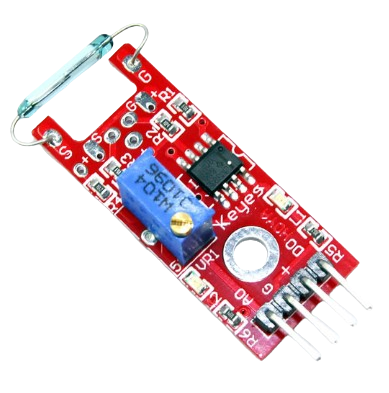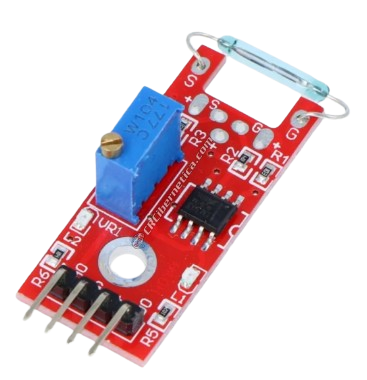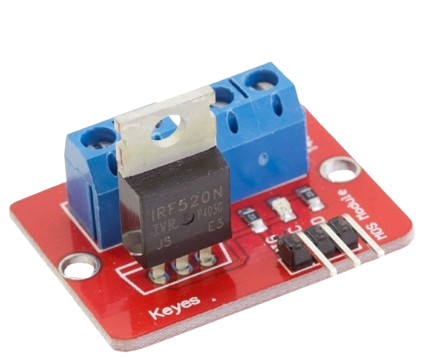🚀 New! Smart IoT Devices + Free Dashboard Access - Control Your Devices Online -
Access the RobuKits IoT Dashboard
*Product images are for illustrative purposes only. Actual product may differ from images. Please refer to the product description and specifications for details.
Reed Switch Module
₹50.0
Prices include applicable taxes.
0 sold
Only 50 left!
Check Delivery Availability
The Reed Switch Module is a magnetic field detection sensor widely used in automation and security projects. It operates by opening or closing its contacts in the presence of a magnetic field. Compact and easy to interface with microcontrollers like Arduino, Raspberry Pi, and ESP boards, this module is highly reliable for detecting proximity, door/window opening, or other magnetic-based switching applications.
No reviews yet. Be the first to review!
Product Specifications
| Specification | Details |
|---|---|
| Operating Voltage | 3.3V – 5V |
| Output Type | Digital (ON/OFF) |
| Sensing Element | Magnetic reed switch |
| Module Size | Compact PCB with mounting holes |
| Interface | 3-pin (VCC, GND, Signal) |
| Response Tim | Fast switching speed |
| Operating Temperature | -40°C to +85°C |
| Lifespan | 100,000 switching cycles |
Key Features
- Simple and reliable magnetic switch mechanism
- Compatible with Arduino, ESP32, Raspberry Pi, and other microcontrollers
- Low power consumption for battery-operated projects
- Provides digital ON/OFF signal output
- Small size with mounting holes for easy installation
- High durability with long switching life
Applications
- Door and window security alarm systems
- Position and proximity sensing
- Robotics and automation projects
- Magnetic field detection
- Smart home systems (intrusion detection)
- Industrial control systems
Frequently Asked Questions
The module provides a digital ON/OFF signal depending on the presence or absence of a magnetic field.
It is used to detect magnetic fields and acts as a switch when exposed to a magnet, making it ideal for proximity detection and security systems.
Yes, it works perfectly with Arduino, ESP, Raspberry Pi, and other microcontrollers.
No, it can be directly interfaced with your microcontroller using the signal pin.



